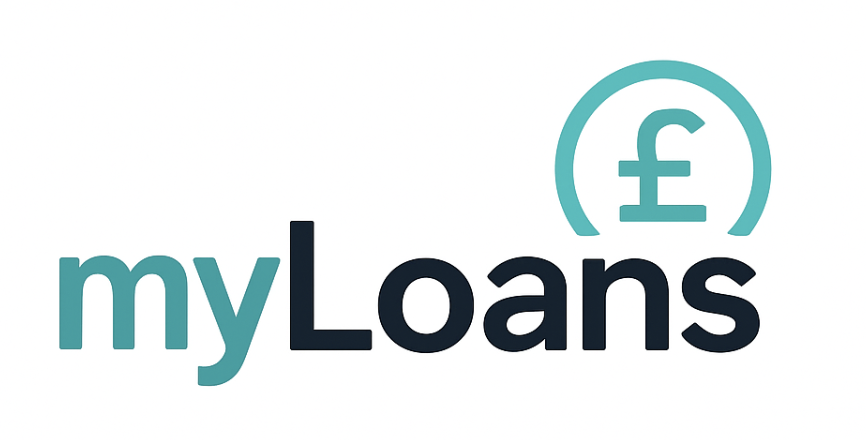Table of Contents
What Is a Loan Guarantor?
A loan guarantor is a person who legally agrees to take responsibility for a borrower’s debt if the borrower cannot repay. This arrangement gives lenders extra security, allowing them to offer loans to people who would otherwise be declined.
-
Common uses: Bad credit loans, rental agreements, some student loans.
-
Nature of agreement: A guarantor’s promise is legally binding once the loan is signed.
-
Relationship: Often a close family member (parent, sibling) or a trusted friend — but not financially dependent on the borrower.
In simple terms: if the borrower defaults, the guarantor must pay.
Who Can Be a Guarantor in the UK?
Not everyone is eligible to act as a guarantor. Lenders usually require guarantors to meet stricter criteria than the borrower. Typically, a guarantor must be:
-
Age: Between 21 and 75 (varies by lender).
-
Residency: A UK resident with a stable address.
-
Credit history: A clean or stronger credit record than the borrower.
-
Income: Proof of regular income or pension.
-
Housing status: Homeowners are strongly preferred, though some lenders accept tenants.
Many lenders will not accept guarantors who are:
-
Financially linked to the borrower (e.g. joint mortgage or bank account).
-
In unstable employment or with a poor credit file themselves.
Responsibilities of a Loan Guarantor
Becoming a guarantor is not just a formality — it comes with serious legal and financial obligations:
-
Repayment liability: If the borrower misses payments, the guarantor must cover them.
-
Full loan liability: In some cases, guarantors may be responsible for the entire outstanding balance, not just missed instalments.
-
Communication with lenders: Guarantors may be contacted directly if problems arise.
-
Credit file impact: If guarantors fail to pay when called upon, their own credit rating suffers.
Why Do Lenders Require Guarantors?
The main reason is risk management. A guarantor reduces the chance of loss for the lender.
-
Borrowers with bad credit, no credit, or irregular income are considered high-risk.
-
A guarantor provides backup repayment security, making lenders more willing to approve.
-
It allows lenders to extend larger loan amounts at lower APRs compared to standard bad credit loans.
Guarantor Eligibility Criteria
Borrower Requirements
-
Must be 18+ and a UK resident.
-
Can show income (employed, self-employed, or benefits in some cases).
-
Credit score may be poor or thin — that’s why the guarantor is needed.
Guarantor Requirements
-
Must pass credit and affordability checks.
-
Should have a steady income or assets to cover repayments.
-
Must provide identification, proof of income, and bank details.
-
Should fully understand the risks before signing.
Risks of Being a Guarantor
While helping someone access credit is generous, being a guarantor carries significant risks:
-
Financial risk: You could be liable for thousands of pounds if the borrower defaults.
-
Credit risk: Missed payments affect your credit file for up to six years.
-
Relationship risk: Family or friendships can be strained if repayments fail.
-
Future borrowing: Acting as guarantor reduces your own borrowing capacity, since lenders see it as a potential liability.
-
Legal action: If both borrower and guarantor fail to pay, lenders can pursue County Court Judgments (CCJs).
How Being a Guarantor Affects Credit Score
-
If the borrower repays on time, your credit file is usually unaffected.
-
If you are asked to step in and repay, the repayment history appears on your credit report.
-
If you miss payments as guarantor, your file may show defaults, CCJs, or negative entries for six years.
-
Even without repayment issues, some lenders may view you as a higher-risk applicant when you apply for your own credit, since they know you could be liable for someone else’s loan.
What to Consider Before Agreeing
If you’ve been asked to be a guarantor, think carefully:
-
Affordability: Could you realistically pay the loan in full if required?
-
Trust: Is the borrower responsible and committed to repayments?
-
Legal advice: Do you understand the contract and your liability?
-
Alternatives: Could the borrower try credit unions, secured loans, or credit-builder cards instead?
-
Exit options: Once signed, you usually cannot withdraw from the agreement until the loan is settled.
Alternatives to Guarantor Loans
For borrowers who don’t want to involve a guarantor, alternatives include:
-
Credit union loans: Lower APRs and flexible repayment options.
-
Secured loans: Backed by property or assets instead of a guarantor.
-
Credit-builder credit cards: Help improve credit gradually with small limits.
-
Government schemes: Such as budgeting loans for those on benefits.
-
Peer-to-peer lending: May provide more flexibility than traditional lenders.
Final Thoughts
A loan guarantor plays an important role in helping people with poor credit access finance, but it is a major commitment. Borrowers benefit from higher approval rates and lower APRs, but guarantors carry the risk of being left responsible for the debt.
Before agreeing, guarantors should carefully assess affordability, check FCA regulation, and understand that they are legally liable for the loan. Both parties must be honest and transparent with each other to avoid financial and personal fallout.
For more insights, see our Guarantor Loans UK Guide and related articles such as Can I Be a Guarantor for a Loan?
How Much Can You Borrow with a Guarantor Loan?
If you’re considering a guarantor loan, one of the first questions you’ll likely ask is: “How much can I actually borrow?” The answer isn’t the same for everyone. While most guarantor lenders in the UK advertise loans between £1,000 and £15,000, the amount you’re...
How to Apply for a Guarantor Loan in the UK: Step-by-Step Guide
Guarantor loans are designed for borrowers who may struggle to get approved for credit due to poor or limited credit history. If you’re ready to move forward, you may be wondering: how do I apply for a guarantor loan? This guide walks you through the full application...
Direct Lender Bad Credit Loans: With and Without Guarantor
When you’re searching for a loan with poor credit, you’ll often come across two terms: direct lenders and guarantor loans. But what does “direct lender” really mean, and how do loans with or without a guarantor compare? This guide explains everything you need to know...
What Happens If You Can’t Pay a Guarantor Loan in the UK?
Guarantor loans can provide vital access to credit for borrowers who have been turned down elsewhere due to bad credit or limited credit history. But what happens if you can’t pay a guarantor loan? The consequences can be serious, affecting both the borrower and the...
Do Guarantor Loans Affect Your Credit Score in the UK?
Before applying for a guarantor loan, many borrowers and guarantors ask the same question: Will this affect my credit score? The answer is yes — guarantor loans can have both positive and negative effects on credit ratings, depending on how the loan is managed. In...
Guarantor Loans: Eligibility and Application Process
A Complete Guide to Guarantor Loans in the UKFinding affordable credit when you have a limited or poor credit history can be challenging. This is where guarantor loans come in. These loans allow you to borrow money with the help of a friend or family member who agrees...








